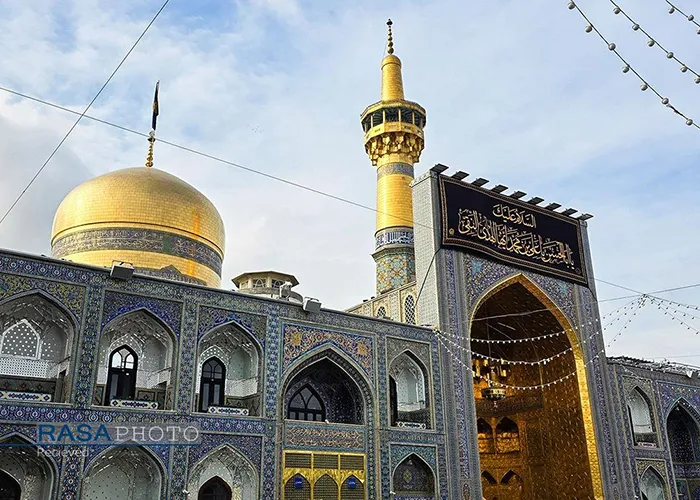Editorial – volume01 Issue26
Empowering Lives through Faith: A Weekly Reflection on Significant Dates
Welcome to the 26th edition of the Friday Bulletin, where we explore significant occasions through an Islamic lens. By connecting these events to the Qur’an and the teachings of the Prophet Muhammad (PBUH) and his family (Ahlul Bayt), we aim to provide meaningful lessons for personal growth and spiritual development. The cornerstone of our approach is Islam’s guidance for a better life, blending reflection and practicality. This week, we focus on five important dates:
- 18th December: International Migrants Day
Migration has been a transformative theme in Islamic history, symbolising the pursuit of faith, justice, and well-being. The Hijrah of the Prophet Muhammad (PBUH) from Mecca to Medina marked the beginning of a new chapter for the Muslim community. Migration in Islam is not just a physical movement but a moral and spiritual journey, as highlighted in the Qur’an:
إِنَّ الَّذِينَ تَوَفَّاهُمُ الْمَلَائِكَةُ ظَالِمِي أَنْفُسِهِمْ قَالُوا فِيمَ كُنْتُمْ قَالُوا كُنَّا مُسْتَضْعَفِينَ فِي الْأَرْضِ قَالُوا أَلَمْ تَكُنْ أَرْضُ اللَّهِ وَاسِعَةً فَتُهَاجِرُوا فِيهَا فَأُولَئِكَ مَأْوَاهُمْ جَهَنَّمُ وَسَاءَتْ مَصِيرًا
“Indeed, those whom the angels take [in death] while wronging themselves, [the angels] will say, ‘In what [condition] were you?’ They will say, ‘We were oppressed in the land.’ The angels will say, ‘Was not the earth of Allah spacious [enough] for you to emigrate therein?’ So those will have their refuge in Hell – and evil it is as a destination.” (Qur’an 4:97)
This verse reminds us of the responsibility to choose environments conducive to practising faith and protecting oneself from moral harm. For migrants today, it is a call to preserve their values while embracing new opportunities. For Muslim leaders, it underscores the importance of guiding their communities to integrate while maintaining their spiritual and cultural identities. The teachings and messages of this beautiful verse are outlined in the ‘Ayah of the Week’ section.
- 18th December: Arabic Language Day
Arabic, the language of the Qur’an, occupies a central position in Islam. It is the medium through which Allah SWT conveyed His final revelation, embodying unparalleled eloquence, depth, and precision. As Muslims, the Arabic language is not only a tool for understanding the Qur’an but also a unifying thread for the global Ummah.
Allah SWT describes the Qur’an as:
قُرْآنًا عَرَبِيًّا غَيْرَ ذِي عِوَجٍ لَعَلَّهُمْ يَتَّقُونَ
“An Arabic Qur’an, without any deviance, so they may become righteous.” (Qur’an 39:28)
For Muslims living in non-Arabic-speaking countries, learning Arabic provides an opportunity to connect directly with the divine message and to enrich their understanding of Islam. Religious leaders play a critical role in promoting Arabic education and fostering a love for the language as a bridge to the Qur’an and Islamic tradition.
- 19th Jumada al-Thani: The Marriage of Abdullah and Amina (Parents of the Prophet)
The union of Abdullah and Amina, the noble parents of the Prophet Muhammad (PBUH), signifies the coming together of two virtuous individuals chosen by Allah SWT for their purity and righteousness. Their marriage laid the foundation for the arrival of the final Messenger (PBUH), whose life transformed humanity.
This occasion invites reflection on the sanctity of marriage and the role of families in nurturing future generations. It reminds us that the spiritual and moral qualities of parents profoundly influence the character and destiny of their children. For contemporary Muslims, it underscores the importance of building strong, faith-centred families that uphold Islamic values.
- 20th Jumada al-Thani: The Birth of Lady Fatemeh al-Zahra (SA)
Lady Fatemeh al-Zahra (peace be upon her), the beloved daughter of the Prophet Mohammad (PBUH), embodies the highest virtues of faith, compassion, and selflessness. Her life serves as a timeless example for all Muslims. On this joyous occasion, we reflect on her profound teachings and actions, such as her famous response to her son, Imam Hasan (AS), when asked why she prayed for others and not herself:
يَا أُمَّاه! لِمَ لا تَدْعِين لِنَفْسِكِ كَمَا تَدْعِين لِغَيْرِكِ؟ فَقَالَتْ: يَا بُنَيَّ الْجَارَ ثُمَّ الدَّارَ
“O Mother, why do you not pray for yourself as you pray for others?” She replied, “O my dear son, the neighbour first, then the house.”
This Hadith encapsulates her selflessness and highlights the importance of prioritising the welfare of others. For Muslims today, it serves as a reminder to foster a spirit of compassion and communal responsibility, especially in a world that often emphasises individualism. This beautiful narration is further outlined in the ‘Hadith of the Week’ section.
- 20th Jumada al-Thani: The Birth Anniversary of Imam Khomeini
The birth of Imam Khomeini marks the emergence of a transformative leader who dedicated his life to reviving Islamic values and establishing justice in society. His teachings and leadership remain a source of inspiration for Muslims worldwide, encouraging them to stand firm in their faith and strive for the collective well-being of the Ummah.
Imam Khomeini’s life was rooted in the Qur’anic principle:
إِنَّ اللَّهَ لَا يُغَيِّرُ مَا بِقَوْمٍ حَتَّى يُغَيِّرُوا مَا بِأَنْفُسِهِمْ
“Indeed, Allah will not change the condition of a people until they change what is in themselves.” (Qur’an 13:11)
This verse reflects the core of Imam Khomeini’s philosophy: meaningful change begins with self-purification and commitment to Islamic principles. His legacy serves as a reminder to Muslims living in diverse contexts to uphold justice, resist oppression, and build communities rooted in faith and unity.
For Muslims in the West, Imam Khomeini’s life emphasises the importance of maintaining Islamic identity while contributing positively to society. His example calls on leaders, parents, and youth to balance personal spirituality with social responsibility, ensuring that faith remains a guiding force in every aspect of life.
Now, It’s time to live these teachings
These five significant dates offer profound lessons rooted in Islamic tradition. Whether through the lens of migration, language, family, the virtues of Lady Fatimah (SA), or the great story of Imam Khomeini, the consistent message is clear: Islam is a comprehensive guide for improving both personal character and society as a whole. As we commemorate these occasions, let us draw inspiration from the Qur’an and the lives of the Prophet (PBUH) and his family to create a more compassionate, righteous, and unified world.
editor's pick
news via inbox
Subscribe to the newsletter.




